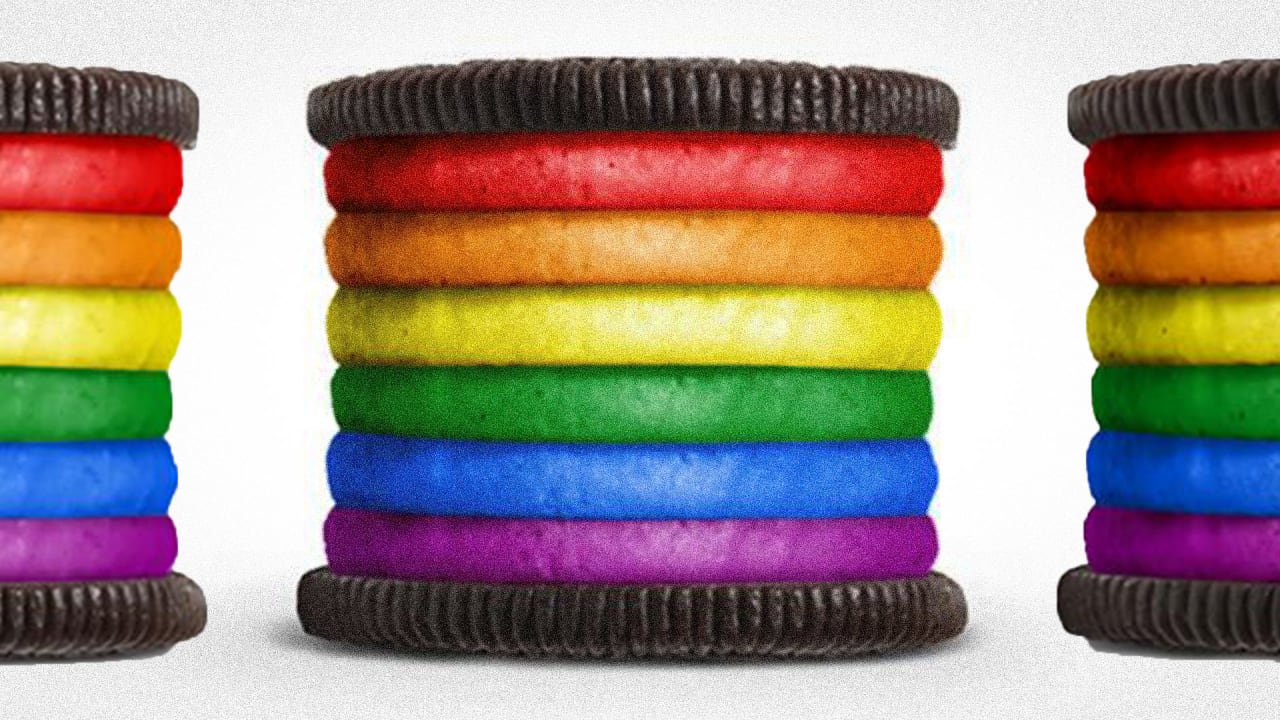[ad_1]

The latest piece of work from award-winning filmmaker Alice Wu (The Half Of It, Saving Face) is a short film about coming out. We meet a young man who appears to be stumbling through his coming-out process to his parents. But there’s a twist that extends this story from the traditional coming-out story to illustrate a larger point about the process, the struggle, and the challenges that don’t end after that first conversation. It’s also an Oreo ad.
The Note is the latest result in a multiyear collaboration between the cookie brand and PFLAG National, and is the launching point for its new #LifelongAlly campaign, which includes a $500,000 donation to the advocacy organization. Oreo senior brand manager Olympia Portale says the brand didn’t want to show another coming-out story, but worked with PFLAG, ad agency 360i, and Wu to find an insight for taking the discussion around coming out in a positive, new direction. That insight revolves around the idea that coming out isn’t just a one-and-done experience. “For many people, the only time their parents or family even acknowledge that they’re in this community is in that first moment,” says Portale. “That [subsequent] silence can last years and can be really harmful. So we wanted to show that being an ally, being supportive to family members, isn’t just about saying ‘I love you, and I support you’ in that one moment, but how you show up in an active way, so that individual feels you have their back all the time.”
Oreo’s first high-profile Pride campaign came back in 2012, the brand’s centennial year, with a Facebook post featuring a cookie stacked high with rainbow-colored icing alongside the comment, “Proudly support love!” The post was widely celebrated but also sparked a backlash, as it came amid the gay-marriage debate at the time. A decade later, LGBTQ+ rights are again at the center of the culture wars, as Texas has passed a controversial anti-trans law, and Florida has passed its “Don’t Say Gay” bill. The landscape for brands in this environment has only become more charged, as Disney has found out amid the Biden-era attacks on “woke corporations,” which take public stands on issues. After initially drawing backlash from LGBTQ+ fans and allies for remaining silent on Florida’s new law, Disney is now a constant target for Fox News and right-wing politicians for its opposition to the bill. Despite this fraught climate for brands, Oreo has continued to step into this issue with impressive creative work and zero hesitation.
This is the third consecutive year that Oreo has worked with PFLAG on its Pride campaign, which began with the 2020 short, Proud Parent. In that spot, a young woman’s father paints the yard fence as a rainbow to show his support. For Portale, the message of The Note is an extension of that first film. “What would’ve happened after the father painted the fence?” asks Portale. “That’s not exactly how we approached this project, but it’s about galvanizing a new generation of allies, to really understand that allyship is action, and it takes more than just showing up at Pride once a year.”
Oreo isn’t the only brand to create Pride work around a coming-out story. A 2016 McDonald’s Taiwan ad went viral, showing a gay son coming out to his dad over coffee at the golden arches. Last year, Doritos Mexico created a spot that shows a dad who goes on Reddit to find help to talk to his son, as part of that brand’s ongoing #PrideAllYear campaign work.
Key to Oreo’s strategy in creating content for and engaging with LGBTQ+ people has been its commitment to working with partners within the community. Portale says that this hasn’t been an overnight development, but one that has evolved over years; it has continued to get stronger particularly since partnering with PFLAG in 2020. “We couldn’t have done this without the help and support of PFLAG,” says Portale. “Partnering with them to do this kind of work, to make sure you’re not doing any harm, has been incredibly valuable. Having Alice Wu on this project was incredible and took the brand into a different space. The nuances she brought to the original idea were incredibly powerful, and took it into a different level.”
For other brands looking to replicate Oreo’s success, Portale says that first is to know what your brand stands for, and why it exists in the world. For Oreo, that is to be playful but also to bring people together. “Oreo is a family brand,” says Portale. “When you ask people their first memory about Oreos, they’ll usually talk about their family. So our goal is to provide moments for people to come together. When we think about how we can extend that into more meaningful topics or territories, we want to focus on the places when these connections between family members might be at risk. If we’re going to fight for a world where all families belong, this was a natural place for us to go.”
Stepping into more meaningful topics can be tricky territory for a brand, and one key to navigating that path is to know the brand’s voice isn’t the most important. “The Note is not Oreo’s story,” says Portale. “Oreo is there to lend our megaphone to the community we want to support, to illustrate the message we, as a brand, want to stand behind is a great place to start. How do you shine a spotlight on people whose story this belongs to?”
[ad_2]
Source link

Comments are closed.